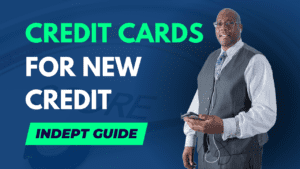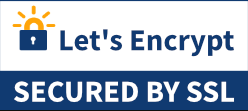Understanding the Basics of Unsecured Cards for Bad Credit
Unsecured credit cards for bad credit are credit cards that don’t require a security deposit as collateral. These cards are specifically designed for individuals with a poor credit history or a low credit score. Unlike secured credit cards, unsecured cards allow you to access a line of credit without putting down any money upfront.
These cards come with their own set of challenges, as they often have higher interest rates and fees compared to cards for those with good credit. However, they can still serve as an essential tool for rebuilding credit when used responsibly.
Importance of Unsecured Cards in Credit Building
Unsecured cards for bad credit play a crucial role in credit building for several reasons:
- Credit Reporting: Unsecured cards report your payment history to the three major credit bureaus (Equifax, Experian, and TransUnion). Timely payments and responsible usage can help improve your credit score over time.
- No Collateral Required: Unlike secured cards, unsecured cards don’t require a security deposit. This makes them more accessible for individuals who may not have the funds for a deposit.
- Flexible Spending: Unsecured cards provide a line of credit that can be used for everyday expenses, emergencies, or other financial needs. This flexibility can help users build a healthy credit history.
- Potential Rewards and Incentives: Some unsecured cards for bad credit may offer rewards or incentives, such as cashback or points, further adding value to their use.
While unsecured cards for bad credit come with their own set of challenges, they offer a valuable opportunity for individuals looking to rebuild their credit. By understanding the basics of these cards and recognizing their importance in credit building, you can make informed decisions and start working towards a healthier financial future.
Advantages of Using Unsecured Cards with Bad Credit
Credit Score Improvement
One of the main advantages of using unsecured cards with bad credit is the opportunity to improve your credit score. By making timely payments and keeping your credit utilization low, you can demonstrate responsible credit usage and gradually increase your credit score. This improvement can open doors to better financial products and lower interest rates in the future.
No Collateral Required
Unsecured cards for bad credit don’t require a security deposit as collateral. This feature makes them more accessible to a wider range of individuals, especially those who may not have the funds to secure a traditional credit card. By offering access to credit without the need for a deposit, unsecured cards can help users build or rebuild their credit history.
Flexible Spending Options
Unsecured cards with bad credit provide flexible spending options that can help users manage their finances. These cards can be used for everyday expenses, unexpected emergencies, or even larger purchases when needed. By offering this flexibility, unsecured cards can serve as a valuable tool for financial planning and credit building.
Potential Rewards and Perks
Though not as common as rewards for cards with higher credit scores, some unsecured cards for bad credit may offer rewards and perks such as cashback or points for certain purchases. These rewards can add value to the card and provide additional incentives for responsible spending and credit management.
Boosting Your Credit Score with Unsecured Cards
On-Time Payments
A crucial factor in boosting your credit score with unsecured cards is making on-time payments. Your payment history makes up a significant portion of your credit score, and consistently paying on time demonstrates responsible credit management. Set up reminders or automatic payments to ensure you never miss a due date.
Managing Credit Utilization Ratio
Another important aspect of improving your credit score with unsecured cards is managing your credit utilization ratio. This ratio is calculated by dividing your total credit card balances by your total credit limits. Aim to keep your utilization under 30% to show lenders that you can responsibly manage your available credit.
Establishing Credit History
Using unsecured cards can help you establish a credit history if you’re new to credit or have a limited credit history. A longer credit history is generally seen as more favorable by lenders, so using your unsecured card regularly and responsibly over time can contribute to a positive credit profile.
Diversifying Your Credit Portfolio
A diverse credit portfolio, consisting of various types of credit accounts, can positively impact your credit score. By adding an unsecured card to your credit mix, you’re diversifying your credit portfolio and showing lenders that you can handle different types of credit responsibly.
Top Unsecured Card Options for Poor Credit
Key Features to Look for in Unsecured Cards
When searching for unsecured cards suitable for poor credit, keep an eye out for these key features:
- Low or no annual fees
- Reasonable interest rates
- Credit limit increases with responsible use
- No security deposit requirement
- Reporting to major credit bureaus
- Potential rewards or cashback programs
Top Providers of Unsecured Cards for Low Credit Scores
Several financial institutions offer unsecured cards tailored for individuals with low credit scores. Some of the top providers include:
| Provider | Unsecured Card Options for Bad Credit | Interest Rates | Annual Fees |
|---|---|---|---|
| Capital One | Capital One Platinum Secured Mastercard | 26.99% (variable) | $0 |
| Discover | Discover it Secured Card | 22.99% (variable) | $0 |
| Credit One Bank | Credit One Bank Platinum Visa for Bad Credit | 17.99% – 23.99% (variable) | $75 first year, $99 after |
| First Premier Bank | First Premier Bank Classic Mastercard | 36.00% (fixed) | $75 – $125 |
Comparing Interest Rates and Fees
Before applying for an unsecured card, it’s essential to compare interest rates and fees. Look for cards with competitive APRs and minimal fees. Keep in mind that cards for poor credit may have higher rates and fees than those for good credit, so finding the best option for your situation is crucial.
Applying for Unsecured Cards with Poor Credit
When applying for unsecured cards with poor credit, ensure that you:
- Check your credit score and report for errors
- Research cards tailored to your credit range
- Carefully review terms and conditions
- Apply only for cards that match your credit profile to avoid multiple hard inquiries
Tailored Unsecured Card Options for Different Credit Ranges
Solutions for Very Poor Credit Scores
For individuals with very poor credit scores, consider the following options:
- Credit builder loans
- Secured credit cards
- Prepaid debit cards
Solutions for Poor Credit Scores
Those with poor credit scores may benefit from:
- Unsecured credit cards with higher interest rates and fees
- Credit builder loans
- Cosigning with a creditworthy individual
Solutions for Fair Credit Scores
If you have a fair credit score, consider:
- Unsecured credit cards with moderate interest rates and fees
- Store credit cards
- Credit builder loans
Alternative Credit Options for Bad Credit
Secured Credit Cards
Secured credit cards are an excellent alternative for those with bad credit. These cards require a security deposit, which serves as collateral and typically determines the credit limit. They report to major credit bureaus, helping build credit over time with responsible use.
Pros:
- Easier approval process
- Helps build credit with responsible use
- Can lead to credit limit increases without additional deposits
Cons:
- Requires upfront security deposit
- May have higher fees and interest rates
Prepaid Debit Cards
Prepaid debit cards can be useful for managing finances without the risk of overspending or accumulating debt. They do not report to credit bureaus, so they won’t help build credit directly.
Pros:
- No credit check required
- Controlled spending
Cons:
- Does not improve credit score
- Potential fees for loading funds
Credit Card Co-Signing
Co-signing a credit card involves partnering with someone with good credit, like a family member or close friend. The co-signer shares responsibility for the account, and both parties’ credit scores are affected by its use.
Pros:
- Opportunity to build credit with responsible use
- Access to better credit card offers
Cons:
- Co-signer’s credit is also affected
- Can strain personal relationships
| Credit Option | Pros | Cons |
|---|---|---|
| Secured Credit Cards | Easier approval process | Requires upfront security deposit |
| Helps build credit with responsible use | May have higher fees and interest rates | |
| Can lead to credit limit increases without additional deposits | ||
| Prepaid Debit Cards | No credit check required | Does not improve credit score |
| Controlled spending | Potential fees for loading funds | |
| Credit Card Co-signing | Opportunity to build credit with responsible use | Co-signer’s credit is also affected |
| Access to better credit card offers | Can strain personal relationships |
Building Credit without Using Credit Cards
There are other ways to build credit without using credit cards, such as:
- Taking out a credit builder loan
- Paying utility bills and rent on time
- Becoming an authorized user on someone else’s credit card
Effective Management of Unsecured Cards for Poor Credit
Budgeting and Expense Tracking
To manage your unsecured card effectively, create a budget and track your expenses. This will help ensure you don’t overspend and can pay off your balance in full each month, improving your credit score over time.
Prioritizing Debt Repayment
Focus on prioritizing debt repayment to reduce your overall debt burden. Aim to pay off high-interest debts first, and always make at least the minimum payment on all accounts.
Utilizing Mobile Apps and Online Tools
Leverage mobile apps and online tools designed to help manage finances and monitor credit. These tools can assist with budgeting, expense tracking, and staying informed about your credit score.
Monitoring Your Credit Reports
Regularly monitor your credit reports to check for errors and stay informed about your credit status. You are entitled to a free credit report from each of the three major credit bureaus annually.
Common Pitfalls to Avoid with Unsecured Cards for Bad Credit
High-Interest Rates and Fees
Unsecured cards for bad credit often come with high interest rates and fees. To avoid being overwhelmed, research card offers thoroughly and compare rates and fees before applying. Always read the terms and conditions.
Overspending Habits
Avoid overspending habits by setting a budget and tracking your expenses. Be mindful of your spending patterns and avoid making impulsive purchases.
Missed Payments
Missed payments can severely damage your credit score. Set up reminders or automatic payments to ensure you never miss a payment deadline.
Ignoring Credit Utilization Ratio
| Common Pitfalls | Strategies to Avoid Them |
|---|---|
| High Interest Rates and Fees | Research card offers and compare rates and fees before applying. |
| Overspending Habits | High-Interest Rates and Fees |
| Missed Payments | Set up payment reminders or automatic payments. |
| Ignoring Credit Utilization Ratio | Regularly monitor your credit utilization and aim to keep it below 30%. |
Your credit utilization ratio is a crucial factor in your credit score calculation. Aim to keep your balance below 30% of your credit limit to maintain a healthy credit utilization ratio.
Frequently Asked Questions (FAQ)
Can I qualify for an unsecured card with bad credit?
Yes, you can qualify for an unsecured card with bad credit, though your options may be limited. Some card issuers specialize in offering unsecured cards for those with poor credit histories.
How long will it take to improve my credit score using an unsecured card?
Improving your credit score with an unsecured card depends on various factors, such as your payment history, credit utilization, and existing debts. With responsible use, you could see improvement within a few months to a year.
What distinguishes a secured credit card from an unsecured one?
A secured credit card requires a security deposit, which serves as collateral and typically determines the credit limit. In contrast, an unsecured credit card does not require collateral, and the credit limit is based on the cardholder’s creditworthiness.
Is it possible to obtain an unsecured card without a credit check?
Yes, some unsecured card issuers offer cards without credit checks. However, these cards often have higher fees and lower credit limits. Research options carefully to ensure the card meets your needs.
What fees should I expect with unsecured cards for poor credit?
Unsecured cards for poor credit can come with various fees, such as annual fees, application fees, and high-interest rates. Carefully review the terms and conditions of each card offer to understand the fees associated with it.
Summary: Maximizing the Benefits of Unsecured Credit Cards for Bad Credit
Key Takeaways
- Unsecured credit cards for bad credit can help rebuild credit scores and provide access to credit without collateral.
- Responsible card usage, including timely payments, managing credit utilization, and diversifying your credit mix, will boost your credit score.
- Research and compare unsecured card options, interest rates, and fees to find the best fit for your needs.
- Avoid common pitfalls, such as high-interest rates, overspending, missed payments, and ignoring your credit utilization ratio.
- Consider alternative credit options, such as secured credit cards or co-signing, if unsecured cards are not suitable for your situation.
Planning Your Next Steps Towards Financial Success
Navigating the world of unsecured credit cards for bad credit can be challenging, but with the right information and resources, you can take control of your financial future. Schedule a call with me, Houston Mcmiller, to help you solve the problems this article proposes and guide you towards success. Book your phone consultation here.










